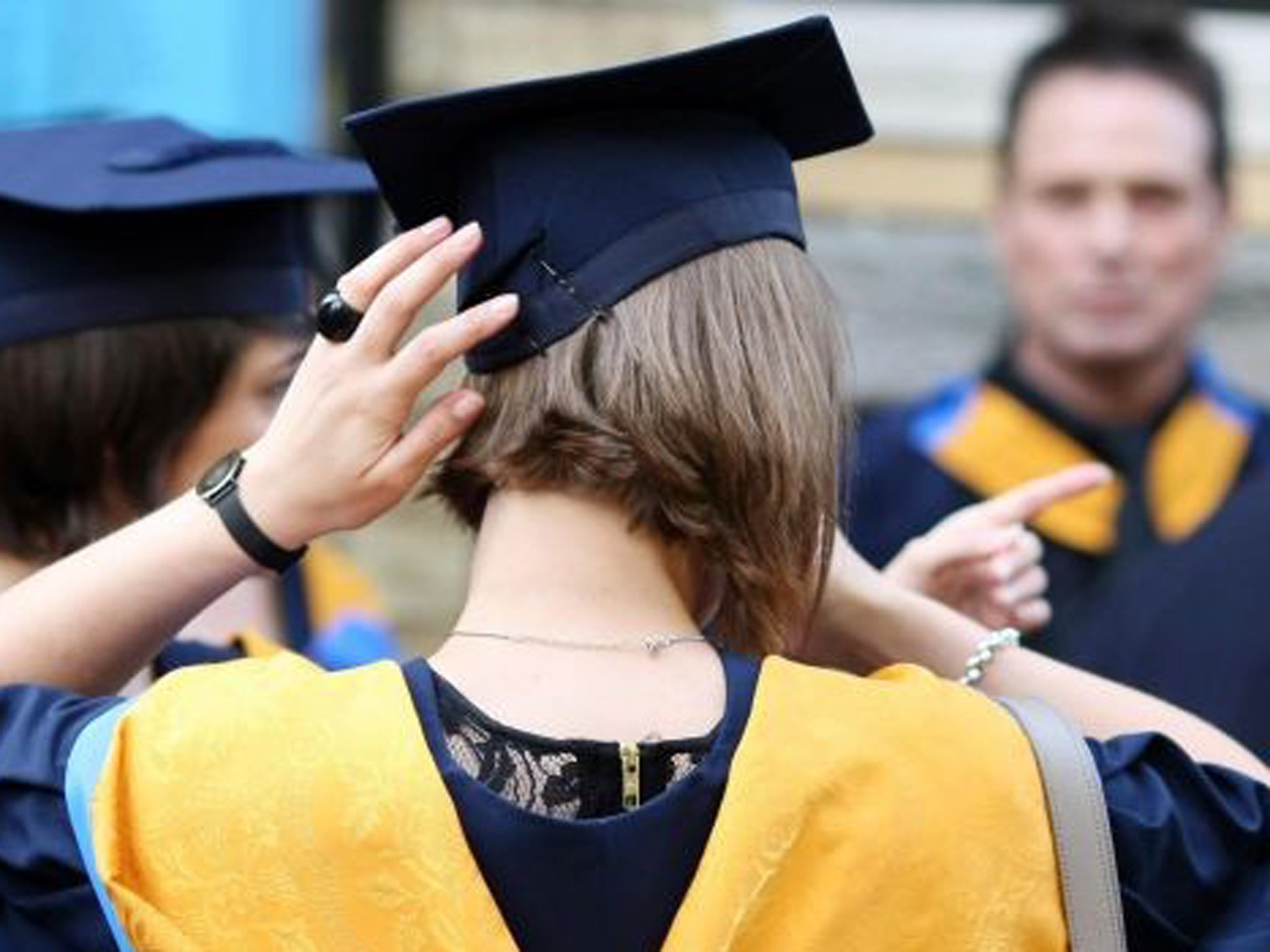Number of UK students applying to university slumps for second year in a row

Your support helps us to tell the story
From reproductive rights to climate change to Big Tech, The Independent is on the ground when the story is developing. Whether it's investigating the financials of Elon Musk's pro-Trump PAC or producing our latest documentary, 'The A Word', which shines a light on the American women fighting for reproductive rights, we know how important it is to parse out the facts from the messaging.
At such a critical moment in US history, we need reporters on the ground. Your donation allows us to keep sending journalists to speak to both sides of the story.
The Independent is trusted by Americans across the entire political spectrum. And unlike many other quality news outlets, we choose not to lock Americans out of our reporting and analysis with paywalls. We believe quality journalism should be available to everyone, paid for by those who can afford it.
Your support makes all the difference.University applications from UK students showed a further slump- prompting a warning from a senior vice-chancellor that a “generation-long” understanding of the benefits of higher education could be “ebbing away”.
The latest figures from the Universities and Colleges Admissions Service (UCAS) show a slump of 18.047 (5.6 per cent) on the previous year - when figures again fell as a result of the introduction of fees of up to £9,000 a year.
The drop off in applications is most marked from English students (6.5 per cent) and Welsh (11.7 per cent). The number of international students to apply has shown a slight increase (0.8 per cent).
They follow the highlighting in today’s Independent by Universities David Willetts of the slump in applications from males. It prompted him to suggest that white working class boys should be targeted for recruitment by universities in the same way as students from disadvantaged areas and ethnic minorities are.
In an interview with The Independent, Bill Rammell, vice-chancellor of Bedfordshire University and a former Labour Higher Education Minister, warned: “The real risk is that we are a societal turning-point.
“The generation-long understanding of the benefits of higher education could be ebbing away. It’s like a super-tanker turning. Once started, it gains momentum.”
He conceded he had expected a “bounce-back” this year following the slump in 2012 in the wake of the introduction of higher fees. “Bluntly, this expected bounce-back hasn’t happened,” he added.
He issued a “call to arms” - urging ministers to mount a “Government-led, university sector-backed” campaign to promote the benefits of a university education.
He added: “There are mixed messages from the Government who seem to be promoting apprenticeships as an option. We need to make it clear it is not an either or. Apprenticeships and other options should not be promoted as the expense of university courses.”
Sally Hunt, general secretary of the University and College Union, added: “We have heard many warm words from the Government about greater efforts to make university appeal to more people but the bottom line is that hiking up the cost is likely to have an impact on people’s decisions when it comes to further study.”
Meanwhile, a leading Labour MP praised Mr Willetts for raising the issue of encouraging more white working class boys to opt for university - but warned it was too little, too late.
Graham Allen, MP for Nottingham North and chairman of the Early Intervention Foundation - who constituency sends the fewest number of young people in the country to university, said: “Where he (Mr Willetts) needs to rethink is to tackle this problem 18 years earlier than the point of admission.
“The answer here is early intervention not a culture of late remedialism which is massively expensive and only ever partially successful.
“There are no quick fixes - only patient long-termism starting with babies and their parents to help develop the social and emotional bedrock that will allow my white working class kids to do just as well on their own merits as middle class kids can.”
UCAS pointed out that it was too early to say what the final picture this September would be - the main deadline for applying is January 15 and last year saw a late rush of applications. Its view was echoed by the Department for Business, Innovation and Skills which pointed out that traditionally fewer than 50 per cent of the final applications had been submitted by December.
In an article in The Independent today, Mr Willetts argued for a campaign focussing on parents - persuading them of the merits of their children going to university and convincing them no-one had to pay upfront fees for courses.
Join our commenting forum
Join thought-provoking conversations, follow other Independent readers and see their replies
Comments